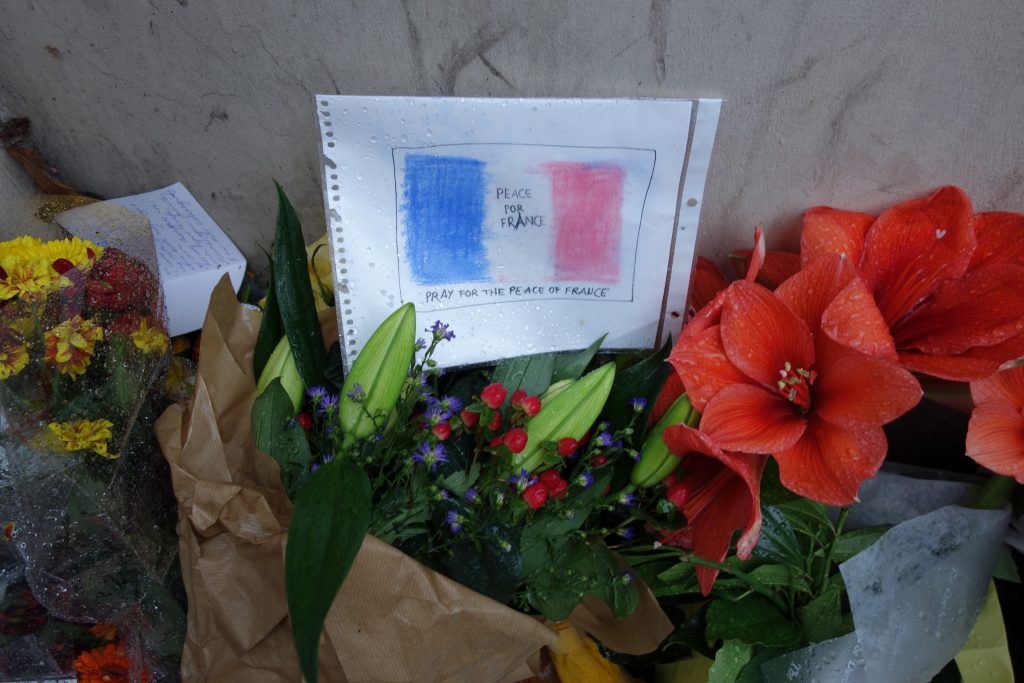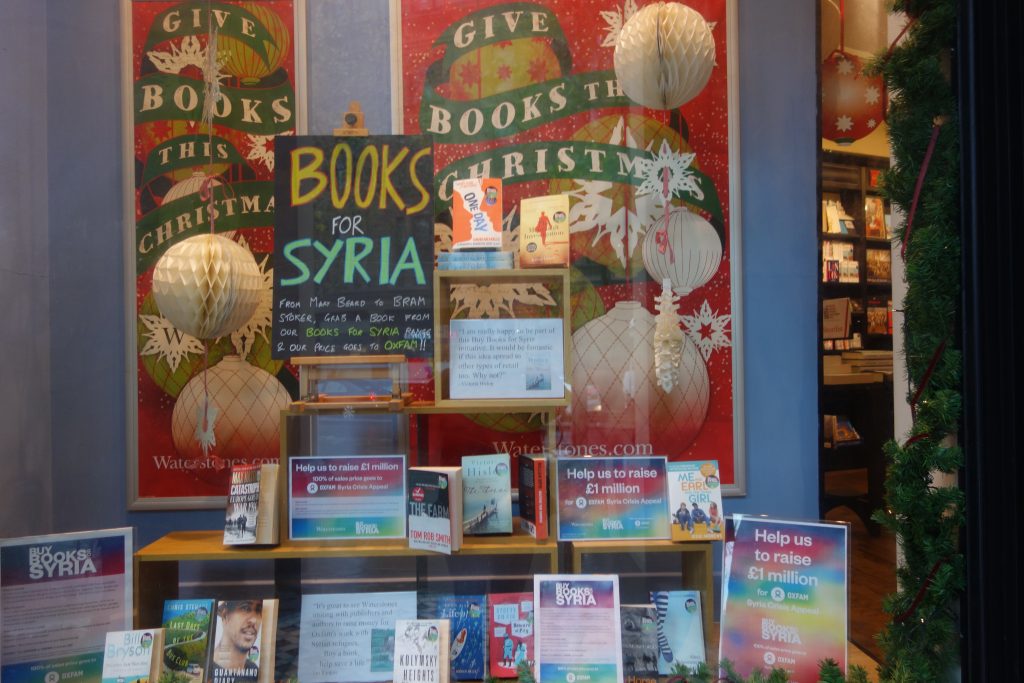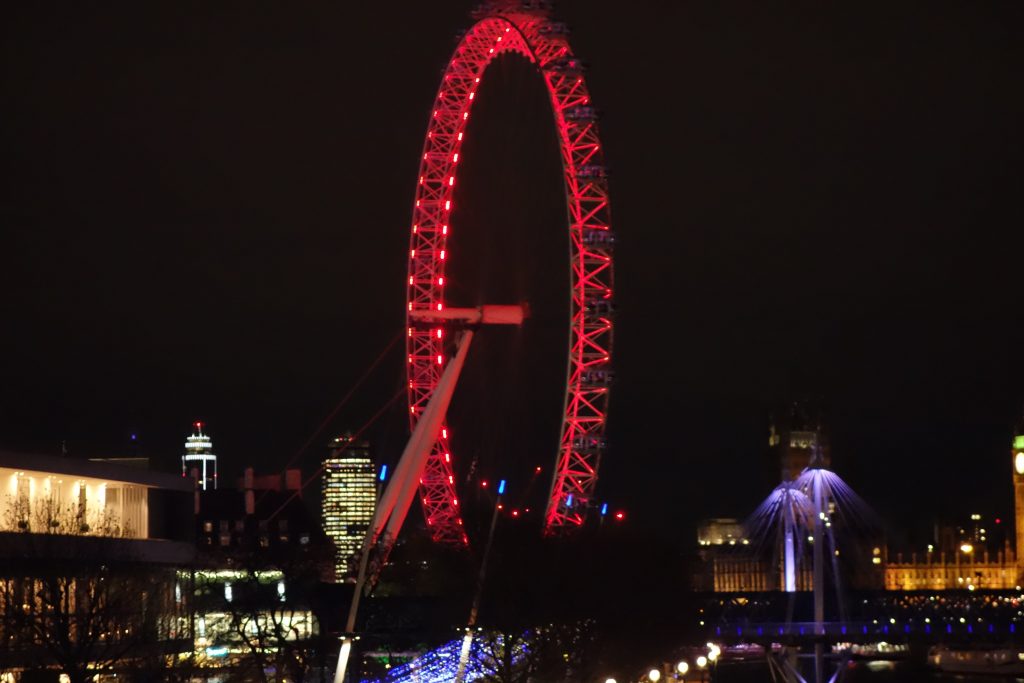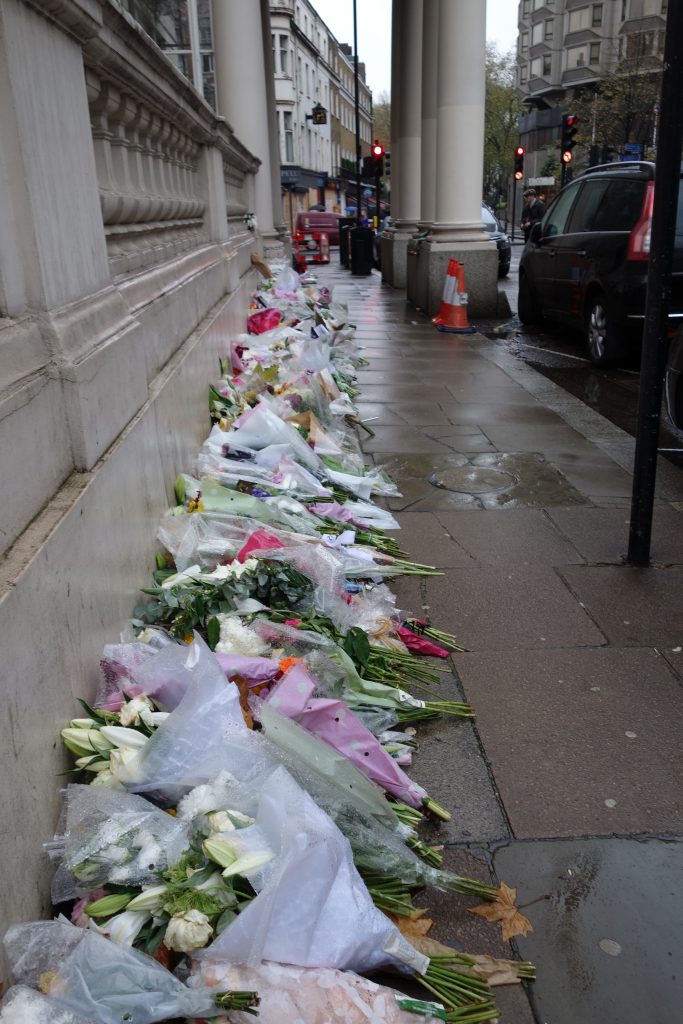A week after Paris, Christopher Jackson explores how we grieve after a tragedy. In doing so, he takes a deeper look at relations between Paris and Islam, remembers the victims and wonders what comes next.
On hearing of the outbreak of World War II, W.H. Auden sat down to write his great poem 1st September 1939. In the famous third stanza, he listed what he suspected would come next:
The enlightenment driven away,
The habit-forming pain,
Mismanagement and grief:
We must suffer them all again.
Although a regular visitor to Paris, and profound admirer of Valéry and Voltaire, Auden is really more associated with Berlin, Spain and the U.S. than the city we saw so outrageously attacked by ISIS on November 13. But his words are a reminder that only our best response to the Paris attacks will do. Many refugees, the majority genuinely dependent on the kindness of strangers and intent on no harm, are still coming into Europe. Just after the attack, rumor spread that one of the killers carried a Syrian passport that had been used in Greece. As of this writing, however, none of the eight people involved in the attacks were refugees. In fact, most were born or grew up in France or Belgium. The situation is therefore both a test of security nous and a test of our compassion.
We are called upon to think straight when there is great and justifiable anger in the air of a kind to make clarity of thought difficult. But after 9/11, we know better than we would like how senseless death can lead to “mismanagement and grief.”
How do we react?
In the short term, our best response is to grieve well, and grieve truly.

Ludovic Boumbas >Facebook
In Paris this means, as it has for so long: Liberté, égalité, fraternité. For fraternité, we need look no further than the courage of the victims and survivors. We have, for instance, the remarkable heroism of Ludovic Boumbas, who was attending a birthday party in La Belle Équipe when attackers pulled up outside and began spraying bullets. Ludo, as he was known, threw himself in front of the gunfire in a bid to save his Tunisian friends Houda and Halima Saadi. All three died, but Ludo is already a hero, one of those rare people of true and instinctive courage whom we will never be able to think about in the past tense. In moments like these, those who have left us are still teaching us how to live. Boumbas’ actions show us briefly what we might need to be: Life must go on in the wake of tragedy, and we too must be courageous even at the party.
Modern grief is also conducted within the liberté of online discourse. Jean Jullien’s superb Eiffel Tower peace sign, dashed off in a moment of emotion, has gone viral. In the U.K., Eyewear Publishing announced that it will publish an anthology called Poems for Paris. Novels about the attacks shall soon hit the bookshops; films shall reach the cinemas. We have also seen Facebook respond quickly. I was relieved to find that several friends in Paris had marked themselves safe through the social network, and it is moving to see friends express their solidarity by backgrounding their pictures with the French flag. The world might seem to pause in fear, but beneath the surface, it is as dynamic as ever.
Going forward, the hardest of all to get right will be égalité, which is what the refugee crisis has really been about. If the U.S. constitution has stated as a self-evident truth that everyone has the right to the pursuit of happiness, so too must that be the case when it comes to people fleeing Middle Eastern wars. We do not know how many Pascals, Saint-Saens or Montaignes there might be among the refugees, but we should not allow the worst of humanity to render us less kind.
It has to be said that the immediate signs are not good. We have already seen German Chancellor Angela Merkel’s welcoming policy, so lauded over the summer, criticized by Marine Le Pen. The far-right French politician called for “an immediate halt” to all refugees coming into France, but President François Hollande has taken the opposite approach, pledging to accept 30,000 Syrian refugees over the next two years.
Worryingly, Le Pen is part of a more general trend. The New Reactionaries have gained in power in France over the past few years and have begun to call for a new and less diverse France. Step forward Éric Zemmour, author of Le Suicide Français, who views white French youth as being “helpless” in the face of the “ostentatious virility of their Black and Arab competitors.” The bitterness of thwarted sexual desire has never been good immigration policy. There is also the depressing example of Alain Finkielkraut, noted professor and member of the Académie Francaise, who has stated that France is a “white race country.” This is demonstrably untrue, with France having the largest number of Muslims in Western Europe. And to cap it all, we have Michel Houellebecq, whose recent novel Soumission (Submission) imagines France with a Muslim president. It is probably not raising the alarm bells to imagine more, and not less of this, as a result of the attacks. Through it all, France’s National Front eagerly awaits the 2017 presidential elections.
Once again, the attacks’ victims have answered some of the questions we are asking. Zemmour might be worried about the virility of black peoples — but don’t we have a better indicator of what that means in the shape of Ludo’s courage? More generally, we find time and again, in the terrible tales of the night of slaughter, the startling importance of love, which can swerve in to astonish us by its hidden dimensions even at the hour of death.

Nick Alexander >Twitter/Polina Buckley
We have learned, for instance, the story of Helen Jane Wilson and Nick Alexander. They had once dated but broke up a few years back. But they were together at the Bataclan. Nick, who was selling merchandise, was shot in front of Helen. She told The Daily Telegraph: “His back was to me and I couldn’t see what happened and I tried to keep him talking and then I tried to give him mouth-to-mouth resuscitation and they [the gunmen] were just sort of in the shadows and they would shoot if anyone said anything. Then he couldn’t breathe anymore and I held him in my arms and told him I loved him. He was the love of my life.”
It is a common theme throughout the testimonies. It may be that people die first in terror, and then in a blaze of love.
The meaning of Paris
But if we ask what Paris means to us, doesn’t love spring straightaway and unbidden to mind?
Among the things we might fear to have lost is a more innocent Paris. But great cities are more resilient than they seem at times like this. Paris is among the most visited cities in the world, a place where people have always come to with special hopes. “Paris syndrome” describes the happy confusion that can come over those who find the thrill of the experience overwhelming. Paris contains much, but somehow always amounts to more than the sum of its parts.
Of course you have the food: from tales told down the years about La Tour d’Argent to a recent animation like Ratatouille, the city conjures intimations of the meal that might change you. It is, of course, a place of concentrated wealth. Paris houses the headquarters of 29 Fortune 500 companies, with all the excess, but also with all the champagne and sheer fun that that entails. More than all these things, it is a city of conversation. From Abelard to Sartre, it is the city where you might most hope to double down on a topic and discover some new aspect of yourself. In Paris, Édith Piaf sings, the dancers of the Moulin Rouge dance, and everyone from Louis XIV to the Fitzgeralds and James Fenton falls hopelessly in love. It’s a place to find or lose yourself — it is perhaps, above all, and like all great cities, an encounter between who you are and what you might yet be.
So there is a sense in which Paris ought to be something we all agree on. And indeed, to an enormous extent, we do. The world population now tops 7 billion, of which some 1.57 billion identify themselves as Muslim. ISIS’ army in Syria numbers somewhere around 31,000. The world and most Muslims are overwhelmingly anti-ISIS. And so it isn’t surprising to find that Muslims overwhelmingly do agree on the crucial issue of Paris. It’s a list of achievement by assimilation. French football would look very different without Zinedine Zidane. Contemporary philosophy would look different without Éric Geoffroy. Rama Yade has made important contributions to the debate on LGBT rights. The rapper Abd Al Malik celebrates his country movingly in a song C’est Du Lourd (That’s real):
La France, elle est belle, tu le sais en vrai, la France on l’aime, y a qu’à voir quand on retourne au bled, la France elle est belle, regarde tous ces beaux visages qui s’entremêlent. Ca c’est du lourd.
[France is beautiful, you do know it, we love France, just check when we go back to the country, France is beautiful, look at all those faces who mix together. That’s being real.]
This might not be great poetry but it is deeply sincere. All these men and women — and many more — have taken Paris to their hearts.
And walking through Paris, you can see architectural evidence of highly successful assimilation. The Grande Mosquée de Paris is in the 5th arrondissement, 3 kilometers (nearly 2 miles) from Rue de Charonne, where one of the shootings took place. The mosque was founded in 1926 in honor of Muslim tirailleurs, auxiliary troops from the French colonies. Around 100,000 of these men were killed in the fight against Germany in World War I. The mosque has frequently been a place of humane thoughts and actions. During World War II, the rector Si Kaddour Benghabrit turned the mosque into a secret refuge for Algerian and European Jews. Shelter was provided, safe passage ensured, and fake Muslim certificates issued: many Jews were saved from persecution.
Nearby on the other side of the Seine, stands the Institut du Monde Arabe (Arab World Institute). At the time of the shootings, a definitive exhibition of the ancient Egyptian god Osiris was being held there. The showing transports visitors well beyond the beginnings of Islam or Christianity, into the earliest religious rites history can record, the murky origins of ritual and belief. The exhibition shows that with the perspective of years, our modes of worship come to seem touching and even quaint; it suggests that our proper recourse to difference isn’t war but study. Just up from the Institute, if you peer at the splendid Gothic architecture of Notre-Dame, according to some scholars, you are also looking at pointed arches inspired by Islamic architecture. If the most famous building in the city is quietly parading an Islamic influence, perhaps we might wonder whether the idea of a pure France so cherished by the New Reactionaries is, in fact, pure illusion.

Muhammad Amine Ibnolmobarak >Facebook
There was one among the dead who might have been able to tell us more. His name was Muhammad Amine Ibnolmobarak and he fell during the shootings at the Carillon. The architect taught at the ENSA Paris-Malaquais school of architecture. A young newlywed full of life. And his life was in Paris.
France’s long history with the Muslim world
Without wishing to skim over the difficulties of Muslim relations in France down the years, it is fair to say that the country has often cherished its dialogue with the Islamic world.
Certainly since Peter the Venerable, there has been a desire on the part of France to study Islam. As Abbot of the Benedictine Abbey of Cluny, Peter commissioned a comprehensive translation of Islamic sources. In 1142, he met his translators in Spain, who had compiled for him not only a version of the Apology of al-Kindi, but also a translation of the Quran into Latin, the first ever. The translators included Herman of Carinthia, Robert of Ketton and a Muslim. And while it is true that Peter’s ensuing commentaries rejected Islam as heresy, it marked the beginning of a more direct engagement with Islam based not on vilification, but on what it actually says.
Although the French have sometimes been highly critical of Islam, it must also be said that the country’s highly philosophical bent has made it question Christianity (Voltaire, Rousseau), the nature of the self (Descartes) and even the nature of reality (Derrida). We have, for instance, a play by Voltaire — Voltaire Boulevard was the scene of some of the attacks — titled Mahomet. Rarely staged now, it is highly critical of the Prophet. But even here we have a record of Napoleon during his captivity on St. Helena criticizing the play: “Voltaire, in the character and conduct of his hero, has departed both from nature and history. He has degraded Mahomet, by making him descend to the lowest intrigues. He has represented a great man, who changed the face of the world, acting like a scoundrel, worthy of the gallows.”

The pointed arches of the Notre Dame in Paris were inspired by Islamic architecture, according to some scholars. >Rebecca Jackson
In other words, for all the difficulties Muslims have faced in France, there has always been a counter-narrative of mutual regard, which ought to have greater force than the fears of the radical right. It has to do with learning from one another. The signature speech of this attitude for our times was delivered by President Barack Obama in Cairo in 2009, and was called A New Beginning. In it, Obama went out of his way to praise Muslim contributions to the world and to American life.
Although Hollande should make sure he makes similar utterances, he has already done one thing. In August 2003, Jacques Chirac announced the creation of the Department of Islamic Art at the Louvre Museum. Five years later, Nicolas Sarkozy laid the first stone; Hollande inaugurated the spaces in 2013. To walk through these galleries is to experience in a baroque palace the flavours of great Islamic art. We have a beautiful Ottoman ceramic wall 12 meters (39 feet) long dating from 1560; an Egyptian porch of the 15th century; and a Monzón lion from 12th– to 13th-century Spain.
Once again, the victims have things to tell us. We can assume that those who were out on the street at the time of the attacks were learners, like Peter the Venerable, people who wanted to use their free time to experience a passion for sport, listen to music or deepen their friendships. You’re not out on a Friday night in Paris if you don’t want to learn something.
There was, for instance, Nohemi Gonzalez, a senior at California State University. Gonzalez was attending Strate School of Design in Paris during a semester abroad. She was gunned down, alongside a fellow student, in the La Belle Équipe restaurant. Her university described her as “buoyant and energetic.” This buoyancy and energy ought to be used now toward the project of assimilation and respect.
So how do we mourn? The dead have already told us. We are to be brave like Ludo Boumbas, we must build like Muhammad Amine Ibnolmobarak, we must study like Nohemi Gonzalez, and we must love like Helen Jane Wilson and Nick Alexander, and all the victims, and those who assisted the injured. Auden finishes his great poem:
Defenceless under the night
Our world in stupor lies;
Yet, dotted everywhere,
Ironic points of light
Flash out wherever the Just
Exchange their messages:
May I, composed like them
Of Eros and of dust,
Beleaguered by the same
Negation and despair,
Show an affirming flame.
That “affirming flame” is really love of life in all its forms. And that is what we really talk about when we talk of Paris.












